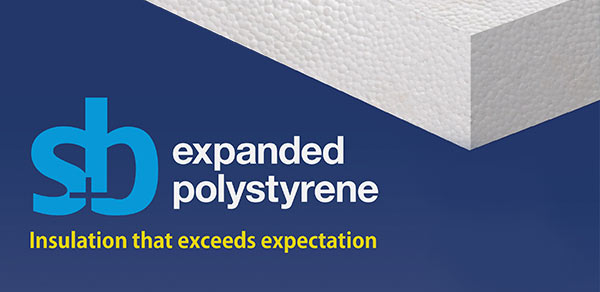i-brochure inc All S and B data sheetsDownload |

Full i-Brochure
with Datasheets
Technical Data Sheets
Roofing
Civil Engineering – EPS Fill
Structural Insulated Pannes
Custom
Lambdatherm®
Certificates
Environmental
FAQs
Is Expanded Polystyrene environmentally friendly?
Yes. Eps has a green guide rating of A+ and a GWP (global warming potential) of < 5. The
product is also 98 % air and fully recyclable.
Does age affect the thermal performance of EPS?
No. EPS consists of 98% air and 2% polystyrene, due to its structure EPS is dimensionally
stable, and will not settle over time. Expanded polystyrene when used and installed correctly does
not deteriorate with age and is able to deliver constant values for the life of the building.
What is a thermal value and R value in insulation terms?
Lambda (λ) Value
Lambda value λ(w/mK) = the value of the insulating capacity of material designed for its thermal performance. Expanded polystyrene ranges from Eps 70E @ 0.038 W/mK to Lambdatherm Elite @ 0.030 W/mK The lower the value, the better the insulation factor.
R-Value
The Lambda (λ) values, combined with thickness of product, give the thermal resistance or R value – of each element. R value is a measure of thermal resistance, measured as The thickness in metres divided by the lambda value. The higher the R value, the better its ability to resist the transmission of heat..
Does EPS burn?
All our EPS insulation boards contain a fire-retardant additive, they do not present an undue fire hazard when correctly installed. Like other organic materials, EPS will burn when in contact with a flame. Due to the fire-retardant additive in EPS, this flame will self-extinguish almost immediately after the fire source is removed.
What is the highest density you can get eps in?
Eps can range from densities of 8 g/l up to 55 g/l used more for civil engineering
applications. See S and B Fill 190 in our Civils section.
Is the finished product fully traceable?
we run ISO 9,001 and ISO 14,001 accreditation both with BBA showing full traceability from
the raw material to finished product.



